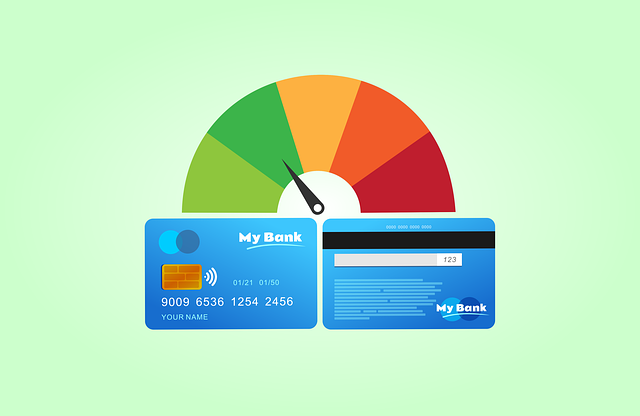Understanding credit scores (3-digit reflections of financial health) is vital for accessing funding. High scores (>700) offer favorable loan terms while low scores (<600) limit opportunities due to perceived risk. Regularly monitoring reports, addressing inaccuracies, paying bills on time, reducing debt, diversifying credit types, and limiting new inquiries can improve scores, unlocking better loan terms, higher borrowing limits, and broader funding access. Proactive measures are key to leveraging credit scores for affordable financial resources and significant purchases.
Credit scores play a pivotal role in determining your access to funding. They are the unseen gateway that influences whether you secure that loan, investment, or even a rental agreement. In this article, we explore how understanding and managing your credit scores can either open or close doors to financial opportunities. From deciphering the impact of low credit scores to uncovering strategies for improvement, this guide offers insights on navigating the world of credit scores and funding availability. Learn how monitoring and leveraging your credit profile can empower you in securing the financial support needed for your endeavors.
- Understanding Credit Scores: The Key to Unlocking Funding Opportunities
- The Impact of Low Credit Scores on Loan Availability
- Strategies for Improving and Leveraging Your Credit Scores
Understanding Credit Scores: The Key to Unlocking Funding Opportunities

Understanding credit scores is pivotal in navigating the landscape of funding opportunities. Credit scores, often expressed as a three-digit number, serve as a snapshot of an individual’s financial health and reliability. They are calculated based on a comprehensive review of one’s credit history, encompassing factors like payment history, debt levels, length of credit history, types of credit used, and new credit inquiries. A high credit score, typically above 700, signals to lenders that an individual is a responsible borrower, capable of managing their finances effectively. This enhanced creditworthiness opens doors to favorable loan terms, including lower interest rates, higher borrowing limits, and easier access to various financial products.
Conversely, low credit scores, often below 600, can significantly hinder funding availability. Lenders perceive individuals with poor credit as carrying a higher risk of default. This perception translates into stricter lending criteria, higher interest rates, limited loan options, and sometimes even rejection for credit applications. However, the power lies in understanding that credit scores are not immutable; they can be improved through proactive measures. Regularly monitoring credit reports, addressing inaccuracies, paying bills on time, reducing debt, diversifying credit types, and limiting new credit inquiries can all contribute to enhancing one’s credit score over time. Leverage these strategies to unlock a world of funding opportunities that were previously out of reach.
The Impact of Low Credit Scores on Loan Availability

Low credit scores can significantly impact an individual’s ability to access funding and secure loans. Lenders often use credit scores as a key indicator of an applicant’s financial reliability and risk. When a borrower has a low credit score, it signals to lenders that they may be a higher-risk investment due to a history of missed payments or excessive debt. As a result, individuals with low credit scores might face challenges in obtaining loans from traditional financial institutions. This can limit their options for funding major purchases like homes, cars, or even starting a business.
Monitoring and improving credit scores is crucial for increasing funding availability. Regularly checking one’s credit report allows borrowers to identify errors or signs of fraudulent activity. Moreover, leveraging strategies to improve credit scores, such as paying bills on time, reducing debt, and maintaining a mix of credit types, can enhance a borrower’s financial profile. Over time, these efforts can lead to better loan terms, higher borrowing limits, and improved access to funding opportunities.
Strategies for Improving and Leveraging Your Credit Scores

Improving your credit scores can significantly enhance your access to funding and the terms offered on loans. One effective strategy is proactive monitoring. Regularly check your credit reports from the major bureaus to identify any errors or discrepancies. This step is crucial as inaccurate information can drag down your score. Additionally, ensuring timely bill payments is fundamental; late or missed payments can have a substantial negative impact.
Leveraging your credit scores means understanding that they play a pivotal role in financial opportunities. A strong credit score opens doors to lower interest rates on mortgages and credit cards, which saves money over time. It also increases the likelihood of loan approvals, making it easier to fund significant purchases like homes or businesses. Conversely, low credit scores can limit funding options, leading to higher borrowing costs. Therefore, taking steps to improve and maintain a healthy credit score is a strategic move for anyone looking to access affordable financial resources.






